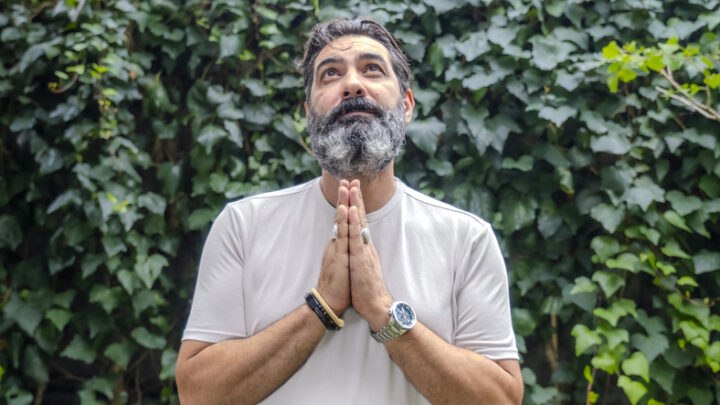Spirituality is supposed to be about feeling connected, grounded, and more in tune with yourself and the world around you.

Of course, sometimes what gets packaged as “spiritual growth” can quietly turn toxic. It does not always come from religion, either. Plenty of unhealthy spiritual practices float around in everyday culture, and they can do more harm than good if you’re not paying attention. These are some of the most unhealthy spiritual practices that have nothing to do with a person’s relationship with their higher power, but can still leave a big mark.
1. Treating positive thinking like a cure for everything

It’s great to stay hopeful, but acting like you can think your way out of grief, trauma, or systemic issues is not realistic. Piling positivity over real problems doesn’t fix them; it just buries them deeper. When people are told that feeling anything other than happy is a personal failure, it creates shame instead of healing. True growth means making space for real emotions, not forcing yourself to smile through serious pain.
2. Believing that suffering is always your fault

Some spiritual circles teach that if something bad happens to you, it must be because of your own negative energy, karma, or past mistakes. That belief can quietly destroy a person’s sense of self-worth as time goes on. Life is messy and unfair sometimes, no matter how good your intentions are. Blaming yourself for every hardship isn’t spiritual. It’s just another way to stay stuck in shame and isolation when you most need compassion.
3. Using spirituality to avoid hard conversations

Talking about love, forgiveness, and compassion sounds beautiful, but if you’re using those ideas to dodge real accountability or uncomfortable truths, it becomes a form of spiritual bypassing. Real spiritual work means facing hard realities head-on, not sugar-coating every conflict or hurt feeling in the name of being “enlightened.” Growth usually gets a little messy before it gets meaningful.
4. Turning self-care into a constant self-improvement project

Spirituality can easily get tangled up with endless self-optimisation, always chasing the next perfect morning routine, breathwork practice, or meditation milestone like a never-ending to-do list. There’s nothing wrong with wanting to grow, but when you turn self-care into a competitive sport, it stops feeling nourishing and starts feeling exhausting. Resting, existing, and simply being enough are spiritual practices too.
5. Worshipping “high vibes only” culture

Surrounding yourself with good energy sounds lovely, but the idea that you should only allow “high vibes” into your life can quietly teach you to shame yourself or others for having hard days. Growth does not happen by pretending negativity does not exist. It happens by learning how to sit with the full range of human experience without losing yourself. Real lightworkers aren’t afraid of the dark.
6. Treating spiritual leaders like they’re infallible

It’s easy to get starry-eyed about mentors, healers, or teachers who seem to have all the answers. But putting anyone on a pedestal, no matter how wise they seem, is a fast track to losing your own sense of self. Healthy spirituality invites you to stay curious, not blindly obedient. A good guide should encourage your own inner authority, not replace it with their voice or their version of the truth.
7. Acting like boundaries are “low vibrational”

There’s a strange belief floating around that setting boundaries is somehow negative or selfish, that if you were truly evolved, you would just love everyone without limits. But boundaries aren’t barriers to love. They’re what make real love possible. Protecting your energy, your time, and your heart isn’t lower consciousness. It’s self-respect, and it’s essential for any kind of genuine growth.
8. Using “everything happens for a reason” to avoid empathy

Sometimes people throw out “everything happens for a reason” when they don’t know what else to say, but it can feel dismissive when someone is in real pain. Not every heartbreak, illness, or tragedy needs to be neatly explained. Sometimes the most spiritual thing you can do is sit beside someone’s grief without rushing to wrap it in a tidy lesson.
9. Thinking you have to be peaceful all the time

Real spiritual growth isn’t about becoming a robot who never gets angry, frustrated, or heartbroken. It’s about learning how to ride those emotional waves without losing yourself in them. Expecting yourself to feel serene every second is just another form of emotional repression. Being a whole human being, messy feelings and all, isn’t a failure. It’s actually where most real transformation begins.
10. Turning every spiritual experience into a competition

Comparing your spiritual milestones to someone else’s—how long you meditate, how many books you read, how aligned your chakras feel—turns a deeply personal journey into another toxic game of who’s doing it “better.” Spiritual growth isn’t a race. If you’re only chasing enlightenment to outshine other people, you miss the whole point. The real work happens quietly, privately, and without needing an audience.
11. Believing you have to “earn” worthiness through healing

It’s easy to think you have to fix every flaw, heal every wound, and complete every lesson before you’re finally enough, but that belief keeps you running endlessly toward a finish line that keeps moving. You’re already worthy of love, rest, and belonging, even if you’re still in process. Healing is beautiful, but it’s not a prerequisite for being lovable. You’re allowed to be a work in progress and still be enough right now.
12. Using spirituality to shame yourself into constant gratitude

Gratitude is powerful, but when it’s weaponised against yourself, like telling yourself you are ungrateful for feeling sad or restless; it stops being a healing practice and starts being another way to shut yourself down. You can be grateful and still have real needs, real pain, and real dreams. True gratitude makes space for complexity. It doesn’t demand that you silence the parts of you that are still aching for more.
13. Pretending that anger has no place in growth

There’s a quiet pressure in some spiritual spaces to treat anger as low-level or “unspiritual.” But anger, when handled with care, can be one of the clearest signs that something needs to change. Ignoring anger in the name of staying “peaceful” often means ignoring real injustice, real harm, and real boundaries being crossed. Spiritual maturity has nothing to do with erasing anger. Instead, it’s about listening to it wisely without letting it control you.
14. Looking for constant transcendence instead of being here

It’s tempting to always chase the next big awakening, peak experience, or moment of transcendence, but constantly trying to escape normal life can quietly disconnect you from the beauty already in front of you. Real spirituality often lives in the tiny moments—washing dishes, laughing with friends, feeling the sun on your skin. You don’t have to ascend out of your own life to find meaning. Sometimes the magic is already here.
15. Shaming other people for not being “enlightened” enough

One of the quickest ways spiritual spaces turn toxic is when people start ranking other people based on how “woke” or “high vibrational” they seem. It turns personal journeys into measuring sticks instead of sources of connection. True spiritual growth makes you more compassionate, not more judgemental. If the path you’re walking disconnects you from kindness, it’s probably time to rethink which direction you are headed.
16. Forgetting that growth is supposed to feel freeing, not heavier

If your spiritual practices are making you feel trapped, guilty, small, or exhausted, something is off. Growth, even when it is challenging, should ultimately feel like a softening, a lightness—not another burden you have to drag around. Healthy spirituality brings you closer to yourself, not further away. It reminds you that you’re already connected, already loved, and already enough, even on the days when your practices look a lot messier than you planned.




